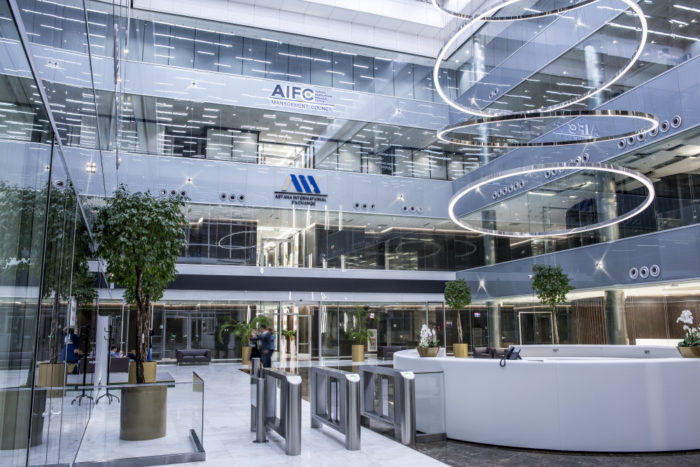The Astana International Financial Center (AIFC) was born just two years ago, bringing into existence a new, vibrant and world-class jurisdiction at the heart of Central Asia. It is modeled on the leading financial centers around the world, and staffed by the best and brightest from across Kazakhstan and the globe. Although it operates using the language of global finance, and is based on similar principles to those in Singapore, Dubai, London and Hong King, it functions within the constitutional framework of the Republic of Kazakhstan.

The AIFC has already recorded a number of firsts for the region, including introducing a legal framework based on principles of English common law, issuing renminbi-denominated bonds, and issuing green bonds, and now it is leading the world with its commitment to building a fairer, technologically empowered legal ecosystem. This will not only create a better investment climate in Kazakhstan and the region, but will enhance access to justice for all, and act as beacon for improvements around the world.

Mark Beer
When President Kassym-Jomart Tokayev delivered the State of the Nation Address entitled ‘Kazakhstan in a New Reality: Time for Action,’ he outlined seven areas for the nation’s economic recovery. The address consists of 10 chapters two of which were devoted to developing an understanding of Justice, and the government that protects the interests of citizens and uses digital solutions to build a stronger economy. The President has already met the Governor of the Astana International Financial Center Kairat Kelimbetov and discussed the recovery of economic growth, for which concepts like Justice and Fairness for business and capital are of extreme importance.
The Astana International Financial Center’s recently created Advisory Council on the Development of Legal Technology can play an instrumental role in achieving the President’s vision and building a stronger economy. The Council, which was established on May 12, 2020, comprises a group of leading legal, finance, policy, academic and technology experts from the UK, US, Netherlands, Kazakhstan, Russia, China, Singapore, and Switzerland. The main goal of bringing together people with such different academic and professional backgrounds as inventors, entrepreneurs, policy makers, academics, lawyers, and regulators is to help the AIFC create a vibrant and sustainable legal technology ecosystem that can improve the efficiency and quality of legal services and make them more accessible.
As President Tokayev rightly noted, ‘digitalisation is not a fashion trend’ and it is not a luxury but rather a necessity to build a better, more effective, and more advanced digital economy in times of uncertainty. In this regard, the LawTech Advisory Council’s role in helping the AIFC create an ecosystem that attracts local and regional innovators, entrepreneurs, start-ups, and tech companies will help boost the business environment and export local IT solutions abroad. Having become the first international financial centre in the world with a strategic focus on Legal Technology, the AIFC has significant potential to become not only a regional hub but also one of the leading LawTech centres in the world. As of today, it has already become a pioneer in running a first-of-its-kind LegalTech internship programme and launching a podcast series. This goes hand-in-hand with the modernisation of the Centre as part of its 2025 Development Strategy.
The pandemic clearly showed us that embracing technology, even in such a traditionally conservative profession as the law, is a must. Today judicial systems of many countries face a massive backlog of cases and stacks of paperwork. One of the examples is India with about 33 million pending cases. It is estimated that if no fresh case is filed, it will take about 360 years to clear this backlog.
Although technological advancements may help the judiciary to successfully perform their duties providing them with an opportunity to conduct remote hearings and receive claims electronically, digital solutions are not a panacea. It is the use of alternative ways of resolving disputes mentioned in the President’s address that will help reduce the number of cases. And it is another area where the LawTech Advisory Council members, some of whom have already built successful online dispute resolution systems, can assist. Our human centric approach is about delivering technology in a way that benefits society in Kazakhstan, Central Asia, and the world.
The author is Mark Beer OBE, the Chairman of the AIFC Advisory Council on the Development of LegalTech.
